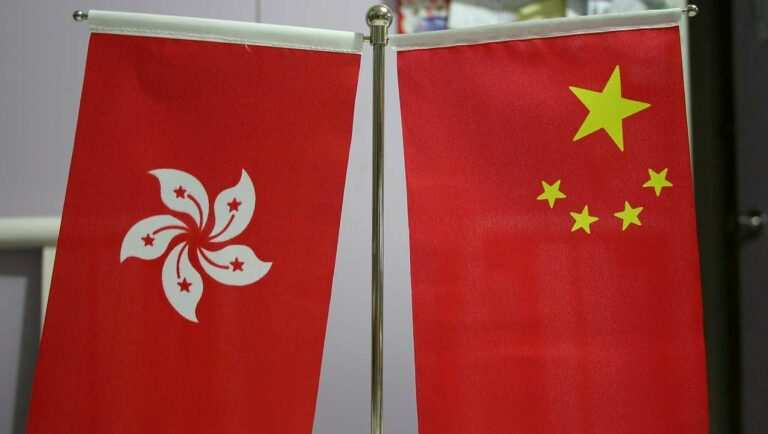
This article was originally published by Radio Free Asia and is reprinted with permission.
The number of high net worth individuals in Hong Kong has fallen by nearly 30% in recent years, as the city’s ranking as a destination for the wealthy drops several places amid an ongoing erosion of the city’s promised freedoms under Chinese rule.
The number of millionaires living in Hong Kong fell by 27% between 2012 and 2023 to 129,000, as the city fell from fourth place globally to seventh place, immigration consultants Henley & Partners said in its World’s Wealthiest Cities Report 2023.
Meanwhile, the number of rich people living in Singapore rose by 40% over the same period, with the city-state overtaking Hong Kong to rise to fifth place in the global survey, it said.
The figures come as the Hong Kong authorities try to woo fresh talent to come to the city amid an ongoing exodus of highly qualified people, handing out free plane tickets to visitors and offering work visas to attract professionals to replace those who have left.
Net departures of permanent residents from Hong Kong totaled 113,000 for the whole of 2022, while the city’s population fell by 1.2 percent in the 12 months to August 2021, prompting calls from media backed by the Communist Party for the government to act to stem the brain drain.
Middle-class families have also been selling off property and voting with their feet, citing the curbs on freedom of speech and growing political interference in schools as driving factors in their decision to leave.
Veteran Hong Kong journalist and former Cable TV finance channel editor Joseph Ngan said there is now little to set Hong Kong apart from other cities in mainland China, with many fleeing the city for Singapore during the three years of lockdowns and port closures that marked the ruling Communist Party’s zero-COVID policy.
Becoming similar to the mainland
An ongoing crackdown on peaceful political opposition and public criticism of the government under a draconian national security law had also taken its toll on the city’s reputation among wealthy individuals, he said.
“Since the national security law took effect, the political and legal environment has become similar to that of mainland China,” Ngan said.
He said the recent rise of Singapore as a destination shows that many wealthy people from China are choosing to relocate there instead of to Hong Kong.
“If the rich in the mainland want to transfer funds overseas, they would rather go to Singapore than Hong Kong,” he said. “Also, Singapore’s political and economic environment is pretty stable.”
“Looking at the Forbes list from last year, we see that around half of Singapore’s billionaires hail from mainland China,” Ngan said. “A lot of mainland Chinese money is going direct to Singapore, and no longer passing through Hong Kong.”
Simon Lee of the Asia-Pacific Institute of Business at the Chinese University of Hong Kong, said the city is facing both a brain drain and capital flight.
“The rich want to keep their wealth away from political issues, and Singapore can keep it away from tensions between other countries, like the United States, Europe, China or Russia,” he said in a written response to questions from Radio Free Asia.
‘Vibrant startup ecosystem’
By contrast, Singapore has been developing its private wealth management sector to compete with Hong Kong, to great effect, Ngan said, citing the Economic Development Bureau’s support for family offices.
According to the bureau’s official website: “For family offices with an interest in venture capital, Singapore has a vibrant startup ecosystem [providing] family offices with exciting opportunities to invest in up-and-coming industries in Singapore such as the fintech sector, which attracted a record high of S$1.2 billion in 2019.”
The scheme includes work visas for professional advisers and permanent residency for members of wealthy families “who intend to drive their businesses and investment growth from Singapore.”
According to Ngan: “The most important thing for the wealthy isn’t the size of the financial market, but the extent to which their personal assets will be protected.”
“Singapore has done a good job in this regard,” he said.
By contrast, asset freezes, including that of jailed Next Digital media magnate Jimmy Lai, as part of “national security” investigations under the current political crackdown in Hong Kong have made a lot of wealthy people nervous.
“There have been a number of issues with assets in the past two or three years due to so-called national security issues,” Ngan said.
Property prices in Hong Kong fell by 15% last year, while Singapore’s property sector is booming, he said.
0 comments :
Post a Comment